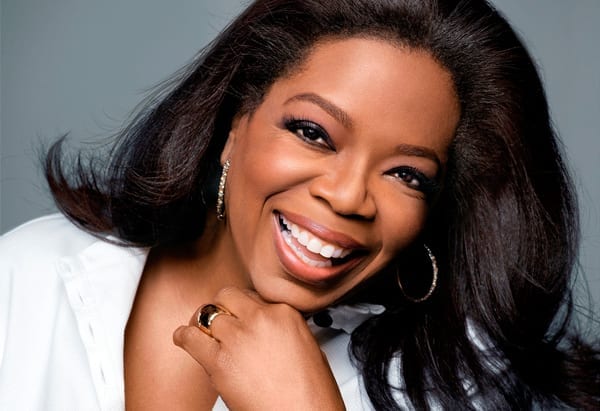 She looked beautiful in a simple crimson dress with a flattering V neckline.
She looked beautiful in a simple crimson dress with a flattering V neckline.
She sang a few lines from one of her favorite hymns.
She made mistakes as she spoke, and then told us that failure is life trying to nudge you in a different direction.
She observed that from Beyonce to George Bush, every single one of the remarkable, often famous, often powerful 35,000 people she has interviewed over the course of her life wanted to know, one way or another, the answer to a simple question: Am I ok?
Oprah came to Harvard last Thursday to claim an honorary degree and make the 2013 grads laugh, cry, consider their futures, and thank their parents. She told us funny and poignant stories from her 25-year television career, which began when she was only 19, and made her one of the richest, most powerful women in the world. She also caused the audience to squirm as she repeatedly called the university “HAHVAD,” which is something people actually at Harvard never do.
But no matter. The poor farm girl from rural Mississippi held sway at what was once the WASPiest, whitest, most patrician university in the United States. She made everyone proud – of her success and of our country’s culture of opportunity.
Miss Winfrey, as the President of the Harvard Alumni Association called her, began the 2013 commencement address by claiming she was speaking in the name of everyone, everywhere, who had ever been made to feel inferior.
It was fitting that the same day Oprah ruled Harvard Yard, the PEW Research Center announced another milestone for people who have long felt inferior, and in fact, are technically still inferior in salary and opportunity in the United States. For the first time in history, moms are the primary breadwinners in 40 percent of homes with children.
Demographers claim the trend toward breadwinner moms is all but irreversible, driven by women’s extraordinary educational gains since the 1960s, female workforce participation inching towards 50%, and gains in traditionally female positions such as teachers, nurses and administrators during the recent recession when traditionally male sectors such as manufacturing and construction declined precipitously.
The news is not all good for moms, unfortunately. Despite the reality that most of our country’s 80 million moms work outside the home, roughly three out of four adults say women who work make it harder for families to raise children. Nearly 60 percent of men, and 45 percent of women, continue to believe that children are better off if their mom is at home.
At work, women’s paychecks are smaller than men’s, even with the same degrees and job titles. The more kids we have, the less moms are paid; the opposite is generally true for men. At home, we are considered less involved than women who are there fulltime, even though research has never shown that working moms – or their children — are inferior to families with stay-at-home moms.
Practical and psychic pressures grate against moms’ need to work, creating guilt, exhaustion, blame and frustration that negatively impact working moms whether they are the sole breadwinners or have partners who also contribute to the family’s economic stability.
So back to Oprah and her battle cry against prejudice in all forms. Working moms, as a subgroup, have long been made to feel inferior to both working dads and at-home moms. It’s time to make it stop.
Demographers believe that the rise in breadwinning moms will, eventually, lead to better childcare and more support for moms at work and at home. And one day, let’s hope, to less guilt and feelings of inferiority. Women should be proud of our advances in education, workplace participation, and breadwinning.
Most priceless of all, we should feel proud of our devotion to our children, no matter our job titles or salaries, or lack thereof. Maybe it’s not too much to hope that our entire society will one day be as proud of us as we are of the young girl from Mississippi with the voice Harvard, and the world, couldn’t ignore.





